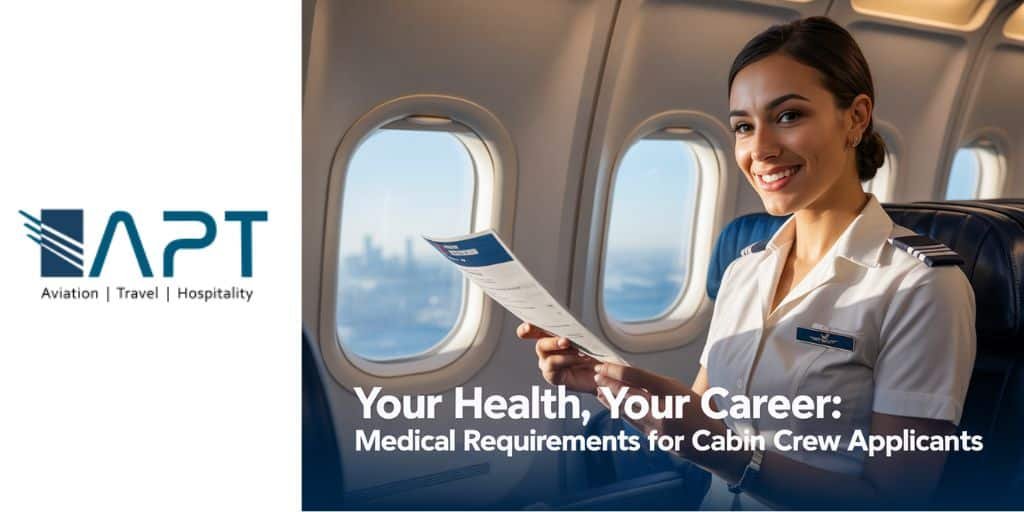A cabin crew career is glamorous but challenging. From greeting passengers aboard to maintaining their safety and comfort during the flight, the job demands a mix of people skills, communication abilities, and physical endurance. Though a professional degree, such as a diploma in hotel operations or a diploma in hotel management, Kolkata, can provide you with the competitive advantage of customer service and service etiquette, there is another important aspect that cannot be neglected: your health.
Before we take to the air, all would-be cabin crew are required to meet stringent medical standards so they can be deemed fit for duty in the air. Let us explore the health criteria airlines generally require and how you can get ready.
Why Medical Fitness Matters?
Cabin crew are not only hospitality experts in the skies, they are also first responders in times of emergencies. Whether tending to a sick passenger, doing CPR, or evacuating an aircraft, your physical and mental health have to be at their best. This is why aviation authorities and airlines insist on thorough medical screenings as part of the recruitment process.
Key Medical Requirements for Cabin Crew
The following are the basic health standards most airlines screen for during cabin crew recruitment:
- Vision and Hearing
Clear vision is vital, but not impeccable eyesight. Almost all airlines accept applicants with corrected vision (glasses or contact lenses), but you have to pass the minimum visual acuity requirements. The same applies to normal hearing without a hearing aid.
- Cardiovascular and Respiratory Health
You should not have any severe cardiovascular or respiratory disease. Airlines will want to see ECGs and lung function studies to check that you can handle cabin pressure and standing for long periods.
- Height and Weight
There are typical height and weight guidelines, mainly to be able to reach overhead bins containing safety gear and be able to get around the small cabin space. The minimum height usually begins at 155 cm (depending on the airline), and your BMI should be appropriate.
- Mental and Emotional Well-being
Cabin crew deal with stressful events, ranging from problem passengers to medical emergencies. Psychological testing could be included in your screening to assess emotional stability and decision-making under stress.
- Skin and Dental Care
Visible piercings or tattoos, aside from normal piercings, are generally not permitted, particularly while working in the airline uniform. Proper dental care is also required, as your smile is a part of airline branding!
Enhancing Your Profile with the Proper Qualification
While fitness is important, never overlook the value of professional training. A diploma in hotel operations or a diploma in hotel management in Kolkata introduces you to the expertise in customer service, food safety, conflict resolution, and cross-cultural communication, all of which have direct application to a career in cabin crew.
Final Thoughts
Your health is a vital resource in the aviation business. Understanding and preparing for the medical needs is your best step towards achieving a career as a cabin crew member. Add to this proper hospitality training, and you will be flying high within your capabilities and confidence.


